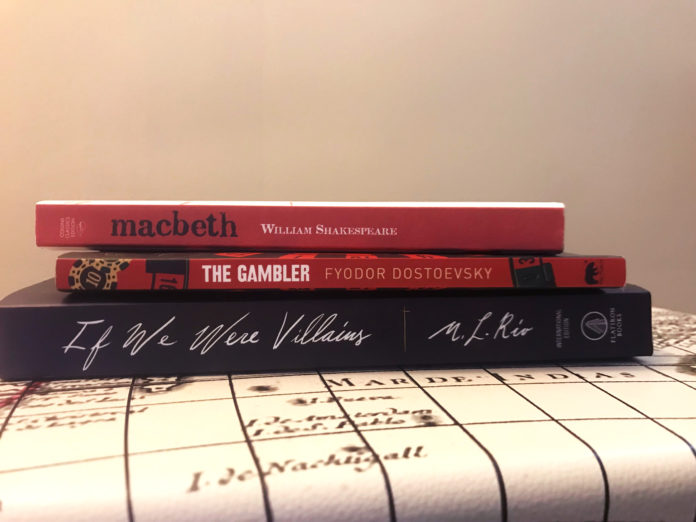As an English Literature major, I don’t ask for much while I weave and twist my way around the required courses in my field.
My minor implies that I must reach farther than anglicised novels, but in Russian and Eastern European studies (a minor that is dwindling quickly since I arrived at this institution) there is only one course that deals with Russian literature: REES 180 (Russian and German Literary Masterpieces).
If they are offered in the term you wish to take them, there are a few select courses surrounding Croatian literature and certain Russian and German folktales as well, but that’s about all the options you have.
Then, when I realize such courses do not even count toward my global literature specialization, my hope plummets. This only makes me wonder…how can the Global Literature requirements be so westernized?
The minor merely includes courses such as Global Shakespeare, American Literature in Global Context, and a plethora of United Kingdom and Ireland literature courses.
Selfishly, I simply wish to be able to spend days reading foreign works and call it homework, but there is a larger issue at hand.
Studying texts from other cultures and societies is important because it helps us to understand others and to diminish xenophobia – something very prevalent today.
Additionally, when you exclude certain cultural texts from the curriculum, you fail to provide students with a true Global Literature education.
Furthermore, why are novels such as Tolstoy’s War and Peace, Hugo’s Les Miserables, and, Homer’s The Odyssey, considered literary masterpieces, but not studied within the context of Global Literature at the University of Waterloo?
Belle, from Beauty and the Beast, said it once and I’ll say it again: books allow you to travel through time and across oceans.
I want to travel farther than my faculty’s restrictions allow. I want to visit Eastern Europe, Russia, the Pacific Isles, Australia, the Middle East, more than just the limits of North America, and the United Kingdom.
The Global Literature specialization should allow students to do so but it doesn’t — it’s lacking.
I don’t want Shakespeare in a global context; I don’t simply want to study English Literature in a global context and have it count as a Global Literature specialization.
I want what’s real.
I want what’s far away; I want to understand cultures I’ve never experienced.
Maybe what I’m after is a graduate school dream, but I am utterly disappointed that this hasn’t happened for me at the undergraduate level.
































